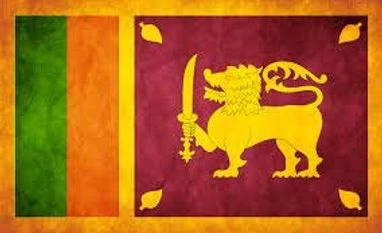Sri Lanka will "nip in the bud" any attempt to revive the LTTE, foreign minister said today, even as there was "compelling evidence" that the banned outfit was carrying out a global campaign to raise funds for terror activities in the country.
"The government is in total control of the situation and has every confidence of eradicating at the very inception any attempt to revive terrorism in any form in any part of the country," External Affairs Minister GL Peiris said.
Peiris was issuing a brief on a government decision early this month that designated some 424 individuals and 16 groups as those supporting terrorists.
"As a result of extensive investigations in recent weeks the government is aware of the sources of this funding and the bank accounts into which the money had been paid. Sixty five arrests have been made and 19 persons have been released after questioning", he said.
"The government will exercise the greatest vigilance and to nip in the bud attempts at resurgence of any form of terrorist activity," Peiris said.
Early this month, the government announced the death of three key LTTE operatives attempting to revive the Liberation Tigers of Tamil Eelam in the Tamil-dominated north.
Colombo also accuses the Tamil diaspora of being behind the third UNHRC resolution which prescribed an international probe into the island's human rights record.
He said the action to 'list' the individuals and groups had been taken under the UN Security Council Regulation 1373, which requires countries to freeze the assets of those "who commit or attempt to commit terrorist acts."
International rights groups have condemned the government move.
New York-based Human Rights Watch said the Sri Lankan government should address its legitimate concerns about foreign terrorist funding primarily through legal cooperation with foreign governments.
"The Sri Lanka government is using the vague counter terrorism regulations to tie the major diaspora Tamil groups to the ruthless but defunct LTTE", Brad Adams, Human Rights Watch's Asia Director said.
About 40,000 Tamil civilians were killed at the end of the separatist war, rights groups and experts have said.
"The government is in total control of the situation and has every confidence of eradicating at the very inception any attempt to revive terrorism in any form in any part of the country," External Affairs Minister GL Peiris said.
Peiris was issuing a brief on a government decision early this month that designated some 424 individuals and 16 groups as those supporting terrorists.
Also Read
Peiris said there was "compelling evidence on remittance of substantial sums of money from overseas for terrorist activity" in the island nation.
"As a result of extensive investigations in recent weeks the government is aware of the sources of this funding and the bank accounts into which the money had been paid. Sixty five arrests have been made and 19 persons have been released after questioning", he said.
"The government will exercise the greatest vigilance and to nip in the bud attempts at resurgence of any form of terrorist activity," Peiris said.
Early this month, the government announced the death of three key LTTE operatives attempting to revive the Liberation Tigers of Tamil Eelam in the Tamil-dominated north.
Colombo also accuses the Tamil diaspora of being behind the third UNHRC resolution which prescribed an international probe into the island's human rights record.
He said the action to 'list' the individuals and groups had been taken under the UN Security Council Regulation 1373, which requires countries to freeze the assets of those "who commit or attempt to commit terrorist acts."
International rights groups have condemned the government move.
New York-based Human Rights Watch said the Sri Lankan government should address its legitimate concerns about foreign terrorist funding primarily through legal cooperation with foreign governments.
"The Sri Lanka government is using the vague counter terrorism regulations to tie the major diaspora Tamil groups to the ruthless but defunct LTTE", Brad Adams, Human Rights Watch's Asia Director said.
About 40,000 Tamil civilians were killed at the end of the separatist war, rights groups and experts have said.
)